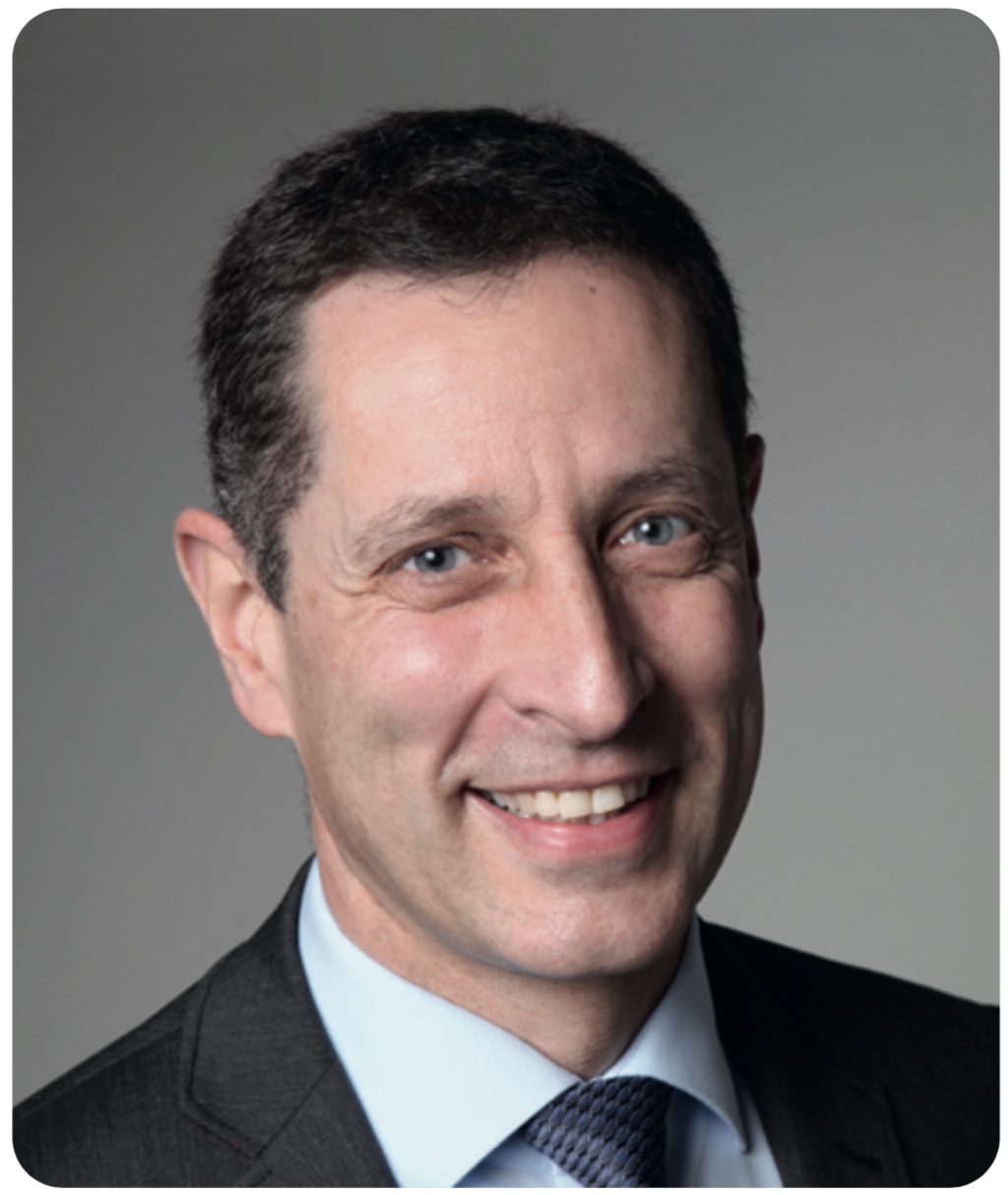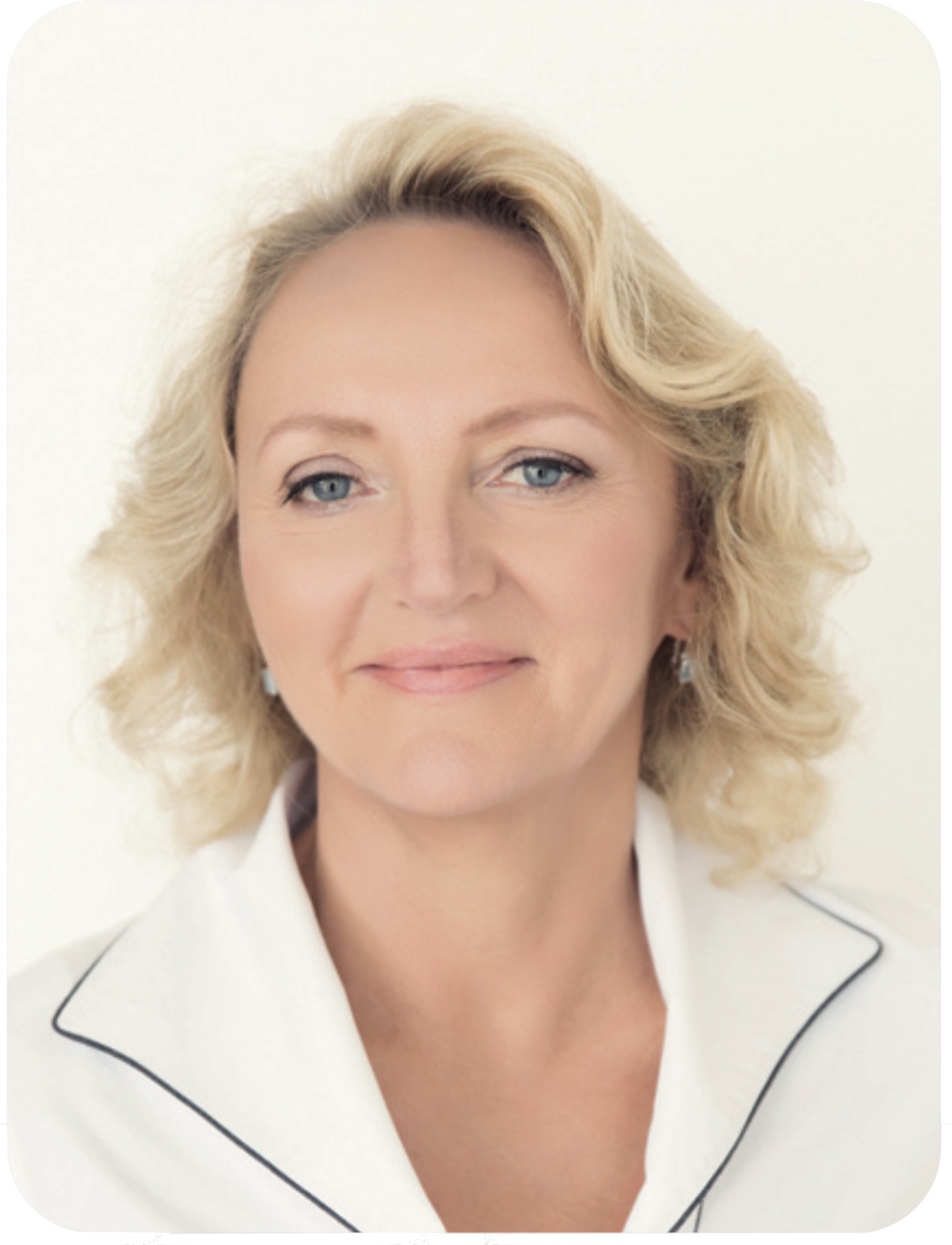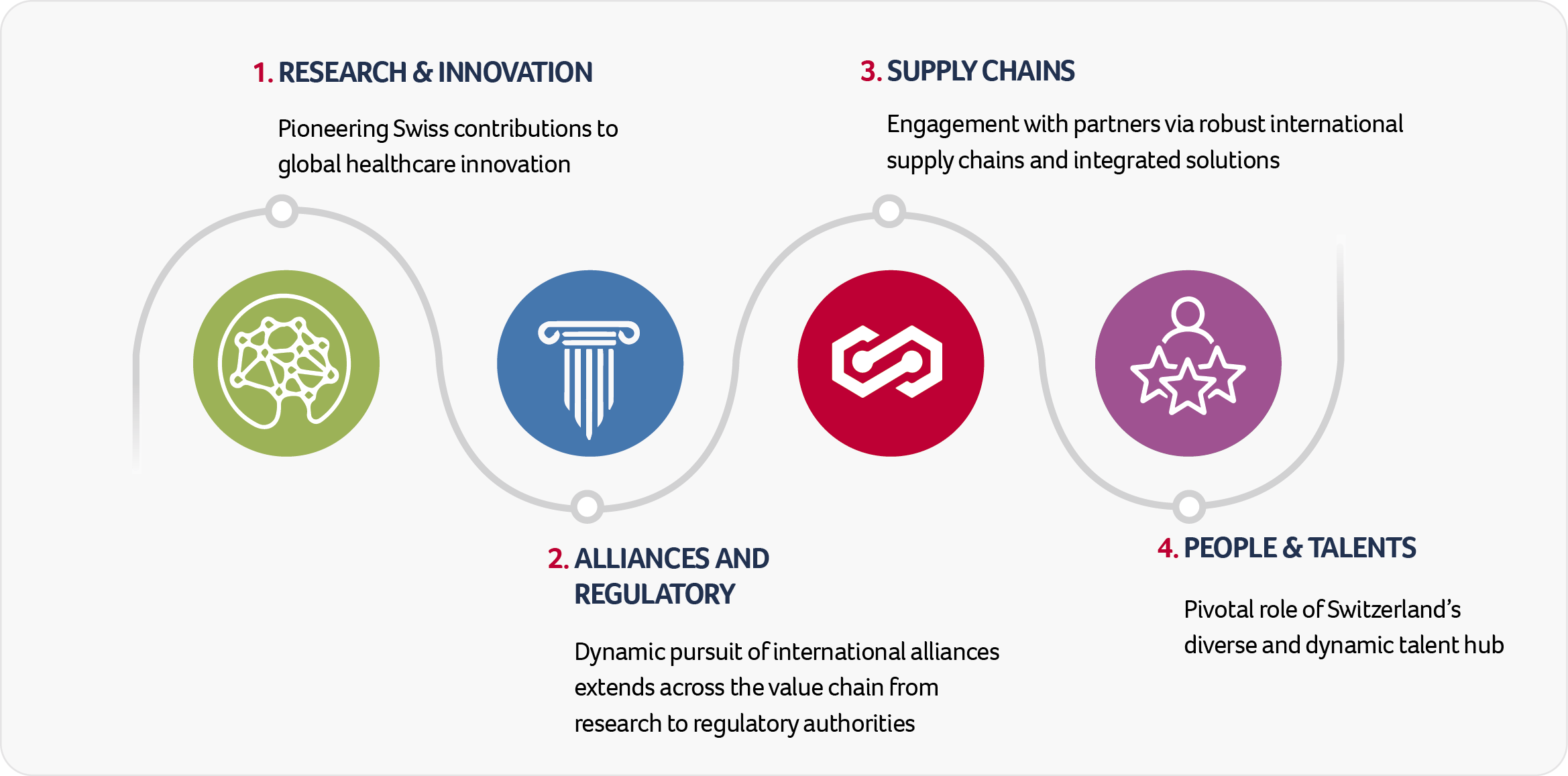- Get directions
- Leave a review
- Claim listing
- Bookmark
- Share
- Report
- prev
- next
- Tuesday, April 23, 2024 @ 11:00 am
Switzerland remains a steadfast driver of crucial scientific discoveries which support global healthcare innovation across many therapeutic areas and stages of product development, including diseases which have a major impact in the developing world. For over a decade Switzerland has ranked top in both the Global Innovation Index and INSEAD’s Global Talent Index, but much of its success can be attributed to international partnerships and collaborations.

Michael Altorfer
Swiss Biotech Association | CEO

Marta Gehring
Swiss Biotech Association | Special projects
Pioneering Swiss contributions to global healthcare innovation
With a multitude of ventures and companies contributing to the evolution of international healthcare, Switzerland is a fertile ground for innovation. The Spiez Laboratory, a cutting-edge BSL-3 biosecurity lab in the Bern area, exemplifies this commitment. Analyzing the initial strains of COVID-19, the laboratory provided vital information which could be applied worldwide. Meanwhile, Geneva’s European Organization for Nuclear Research (CERN) has played a pivotal role in advancing critical medical imaging technologies, including the development of positron emission tomography (PET).
Tecan’s laboratory automation solutions, Genedata’s bioinformatics solutions, Molecular Partners’ DARPins technology, Amazentis’ innovations in mitochondrial health, CRISPR technology developed by CRISPR Therapeutics, and engineered cell line technology for gene therapies by NewBiologix are just a few examples of Swissdriven advancements. Through active engagement in precision medicine initiatives, Swiss companies are also spearheading international collaborations to make personalized healthcare a reality.
In the area of biotech patents, Switzerland has the highest market coverage, i.e. number of countries for which protection has been obtained and their relative market importance, as well as an exceptionally high “technology relevance”. A crucial factor in this success is that more than two-thirds of Swiss-based inventions involve co-authorships with colleagues worldwide, fostering a global scientific approach that enhances research impact (see IPI article).
Switzerland’s leadership also extends beyond cutting-edge therapeutics. The nation actively promotes research and development of drugs relevant to the developing world. Collaborative efforts involving Swiss state and private players have resulted in the development of a malaria prevention drug suitable for pregnant women, a tuberculosis therapeutic, and a treatment for African trypanosomiasis (sleeping sickness). To ensure global access, the Swiss Agency for Development and Cooperation (SDC) supports quality approval procedures in partner countries and facilitates low-cost access to these life-saving drugs.¹ This holistic approach reflects Switzerland’s commitment to bridging global health disparities.
Dynamic pursuit of international alliances extends across the value chain from research to regulatory authorities
Through its integral role in EUREKA, a global public network for international cooperation in R&D and innovation, Switzerland helps to shape the future of healthcare. Swiss organizations participating in EUREKA projects gain eligibility for funding through various network initiatives:
- Eurostars empowers Swiss SMEs to lead international project consortia, receiving national and EU funding to realize their innovations
- EUREKA Clusters are industry-led international communities which focus on strategic technologies, including advanced manufacturing
- Globalstars facilitates R&D projects beyond the EUREKA network
All three of these initiatives are generously funded by Switzerland.
Simultaneously, Switzerland’s regulatory landscape is evolving through strategic collaborations, notably with the FDA, marking a significant expansion of influence, particularly in the pivotal manufacturing sector. The partnership encompasses a Mutual Recognition Agreement (MRA) between Swissmedic and the FDA, a transformative pact effective since July 2023, specifically covering Good Manufacturing Practice (GMP).² This agreement validates inspections conducted by each other’s regulatory authorities, alleviating the regulatory burden for Swiss manufacturers operating in the US, and for US multinationals with manufacturing operations in Switzerland.
Swissmedic’s engagement extends beyond manufacturing to include collaborative efforts to accelerate the approval of therapeutics, showcasing Switzerland’s proactive role in global initiatives. Notably, its involvement in the FDA Oncology Center of Excellence’s (OCE) Project Orbis since 2019 underscores the country’s commitment to expediting regulatory reviews of cancer treatments. Switzerland’s adeptness in keeping pace with the FDA review process distinguishes it among member countries.³
Furthermore, Switzerland is a key player in the Access Consortium (see Swissmedic article, page 30) alongside Canada, Singapore, the UK, and Australia, and was one of the first members to approve a new monoclonal antibody (faricimab) for wet AMD and diabetic macular edema (DME) within a remarkably brief review period of 212 days in 2022.
Engagement with partners via robust international supply chains and integrated solutions
Switzerland’s industrial strength is reinforced by international collaboration and the close proximity of customers.
Lonza, headquartered in Visp and Basel, exemplifies this approach, with a global footprint extending across more than 30 sites spanning five continents, from Antwerp in Belgium, to Wellington in New Zealand. Specialized Lonza sites are strategically located worldwide, focusing on bioavailability enhancement in Bend, Ohio; mammalian cell lines in Guangzhou, China; in vitro immune assays in Cambridge, Massachusetts; and upstream development in Singapore.
In Schwyz, Kühne & Nagel, a global leader in distribution, operates a specialized life sciences distribution arm. With pharmaceutical hubs strategically positioned in Europe, Asia, the Middle East, Africa, and the Americas, the company recently assumed the distribution responsibilities for the Moderna-SARS-CoV-2 vaccine.
Siegfried Holdings, based in Canton Aargau, has this year announced substantial investments, up to CHF100 million in the development and manufacturing of viral vectors for cell and gene therapies and to construct a new large-scale production plant for drug substances. This initiative complements Siegfried’s existing “network of sites” which includes the US, Malta, China, Germany, France, and Spain.⁴
This strategic expansion underscores Switzerland’s commitment to maintaining a leading position in the global landscape of biopharma and life sciences manufacturing.
Pivotal role of Switzerland’s diverse and dynamic talent hub
Switzerland benefits from an exceptionally varied and versatile talent pool, thanks to the way the country has developed its policies and education system. The country works closely with the European Union within the framework of the Swiss-EU Bilateral Agreement on the Free Movement of Persons (AFMP) and has adopted the EU’s system of mutual recognition of professional qualifications. Nationals from non-EU states are entitled to apply for recognition of their foreign qualifications, and companies are able to tap talent from neighboring countries, with 1 in 5 workers crossing daily into Switzerland for work.
The Times Higher Education World University Rankings shows that Switzerland boasts five of the top 100 universities in life sciences and medicine, and two in the top 100 for natural sciences.⁵ These universities help to provide a pool of highly skilled professionals who have attained advanced qualifications in areas such as pharmaceuticals, biotechnology, and medical sciences. They also attract global talent, and many of their graduates choose to pursue their careers in Switzerland.

References
1 https://www.eda.admin.ch/deza/en/home/themes-sdc/health-development/health-systems-sanitation.html
4 Siegfried media release https://www.siegfried.ch/2032/
6 https://www.avenir-suisse.ch/en/publication/innovation-without-borders/
